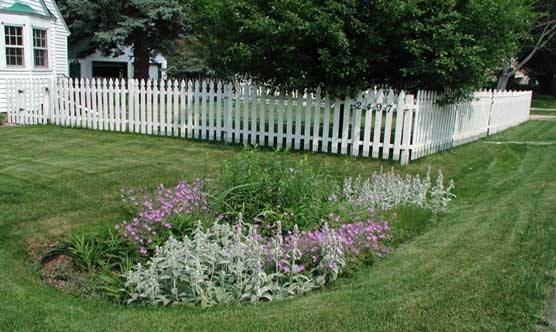2.1
Bioklimatická nebo-li dešťová zahrada
Dešťová zahrada zahrnuje terénní prohlubeň, do které stéká a zároveň se udržuje voda z okolí. Jsou v ní vysázené vybrané rostliny, jejíchž kořenový systém slouží jako filtr a zadržuje vodu. Kořeny, které slouží jako filtr dokáží absorbovat kontaminanty a to až o 30 – 40 % než u běžných trávníků. Tento systém zabrání vsakování škodlivin do podzemních vod či případnému odvedení do kanalizací. Dešťová zahrada nejen, že umožní lepší udržení vody, ale také poskytne úkryt a potravu živočichům.
Esteticky i environmentálně zajímavou variantou, jak si poradit se srážkovou vodou, jsou vegetační střechy, tedy střechy, jejichž povrch tvoří živá zeleň.
Čím mohou přispět jednotlivci, například zahrádkáři?
Péče o krajinu začíná tím, že zahrádkáři kompostují. Kompostováním získají organické hnojivo, které vpravují do půdy. Takto obohacena půda pak lépe vsakuje vodu a hůře pouští živiny. Důležité je zachytit vodu přímo v krajině, tam, kde spadla, než v rybníku a v nádrži. Zachytávání vody musí být plošné. Zemědělci dříve používali vsakovací rýhy a jímky neboli poslední brázdu pole, která byla hlubší. Ukazuje se i další věc. Vytvořením meze nebo zemědělské terásky se pozvolna v těchto místech ukládá voda a zároveň se zabraňuje erozi půdy.
A čím mohou přispět lidé ve městech? Můžeme vodou ještě víc šetřit?
Větší šetření vodou je stále zapotřebí. V zemích podobných Guatemale je denní spotřeba na osobu 50 litrů. Tento objem se bere jako doporučená humanitární dávka. V chudých zemích by tato voda měla být zadarmo. Čech spotřebuje kolem 90 litrů vody na den. Současný vývoj směřuje ke sbírání dešťové vody nebo takzvané šedé vody, což je odpadní voda neobsahující fekálie a moč, která odtéká z umyvadel, van, sprch či dřezů. Má to několik pozitivních dopadů. Zmenšujete povodňovou vlnu, protože zachytíte příval srážek a šetříte pitnou vodu, se kterou se jinak splachují záchody či zalévají zahrady.